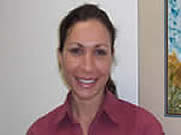Heather Rae-Espinoza, Ph.D.
| Department of Human Development
| HOME |

Classes
HDEV 307I | SYLLABUS
This course examines changing ideas about children and child development. We use materials from the disciplines of sociology, history, anthropology, developmental psychology, and cultural studies, to look at research on children, the treatment of children, and policies regarding children. Because we examine children in their social and historical context, we learn not only about children but also about families, schools, media, and both local and global culture.HDEV 360 | SYLLABUS
This course examines the cultural foundations on which human development rests. Humans are social creatures who cannot develop outside of human culture, and culture therefore impacts all aspects of our development. In this course, we look at variations in cultural practices and concepts to see how these variations alter the more “context free” picture of development often provided by the study of development. Contextual focus will be given to kinship, gender / sexuality, religion, mental health, and emotions. A primary goal of this course is to develop skills in discerning and accounting for the differences in peoples’ ways of conceptualizing, experiencing, and interpreting the human life cycle in accord with cultural values. This includes understanding how the ways that differences in systems of interpreting and evaluating behavior can create prejudices, conflicts and tensions between peoples. A secondary goal of this course is to understand how ethnographic research methods help researchers recognize and understand these different cultural bases of human development.